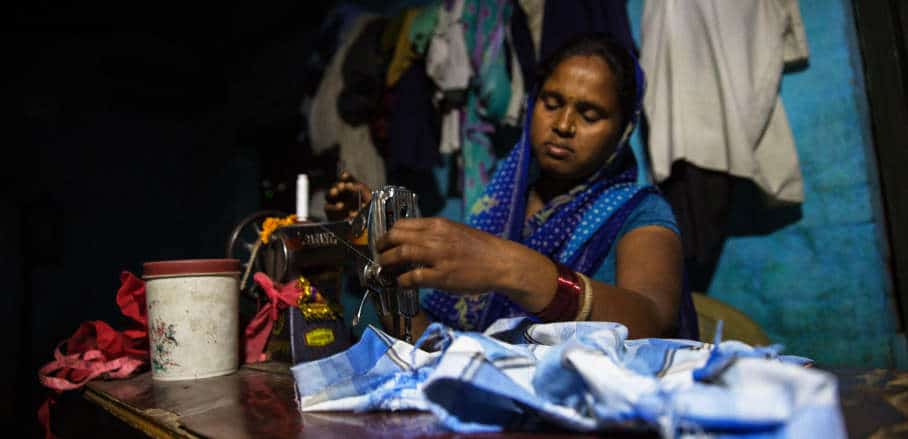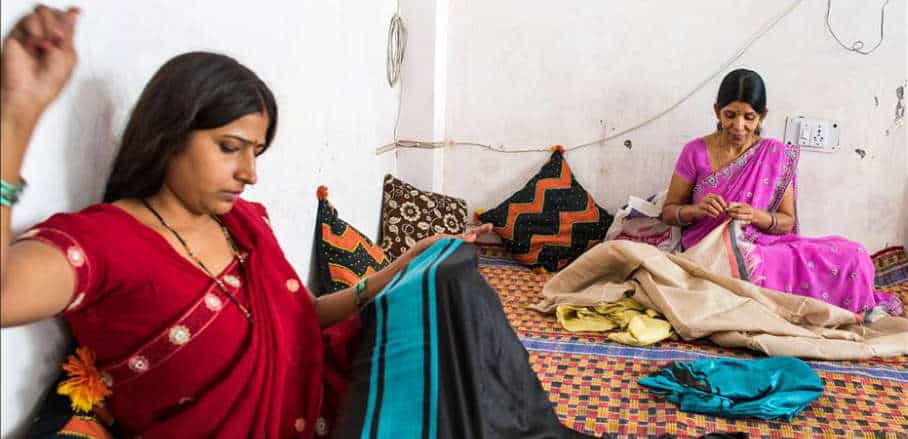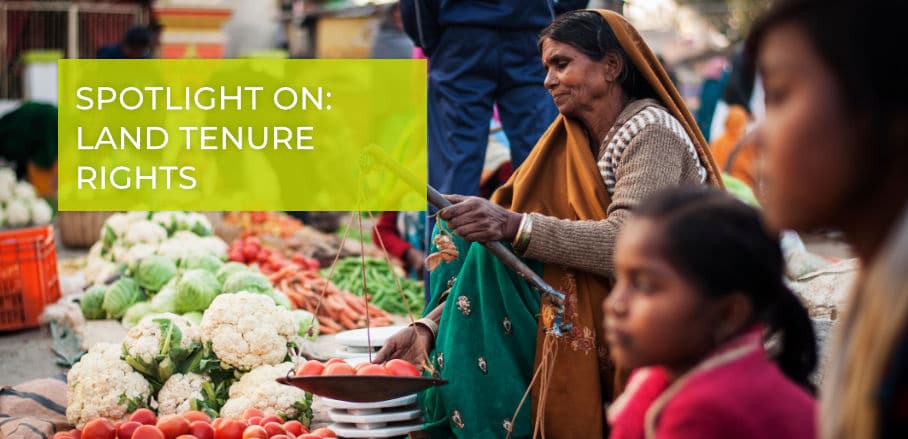Regularising Unauthorised Colonies in Delhi: A Missed Opportunity to Improve Gendered Access to Land?
Delhi’s recent regularisation scheme PM-UDAY promises to improve tenure security of about 5 million residents – a highly ambitious task considering the gendered implications of land tenure security in India. Can the scheme deliver on its potential and strengthen women’s land ownership? By Sonal Sharma, Smriti Singh and Sukrit Nagpal from SEWA Bharat
A critical determinant for achieving Sustainable Development Goals 1, 2 and 5, eradicating poverty, hunger and gender inequality, is securing land rights for women. In India, the central government’s scheme “Pradhan Mantri – Unauthorised Colonies in Delhi Awas Yojana” (PM-UDAY) promises the regularisation of 1,731 Unauthorised Colonies (UACs) inhabited by approximately 50 lakhs (5 million) lower and middle-class residents. However, it misses out on the potential opportunity to address gender gaps in access to property titles. Based on SEWA’s work in UACs, this piece calls for strengthening women’s ownership and suggests modifications to the current regularisation scheme.
Indeed, it can be argued that PM-UDAY lacks an actionable gender perspective. Announced four months ahead of the nationwide lockdown and the subsequent financial crisis, PM-UDAY presented an opportunity for thousands of Delhi’s urban poor women workers and their families to assert their incontestable right to their homes. Instead, these settlements are witnessing minimal uptake of the scheme against a backdrop of worsening gender equality outcomes in a post-COVID world.

A home-based worker doing tailoring work © SEWA Bharat
Financial Vulnerability and Fear of Eviction
Estimates suggest that about 13 per cent of Indian women hold land. In UACs, most residents possess General Power of Attorney (GPA) and sale agreements in the names of male family members. The GPA was originally designed as an instrument through which people could transfer powers to manage their affairs; however, GPAs have been widely used by individuals with imperfect property titles or those who cannot execute registered deeds to transfer property. GPAs are also popular because they allow buyers and sellers to conduct transactions without paying stamp duties and registration fees. These documents typically form the basis on which regularisation applications are filed, leading to the conferment of ownership rights to men.
At best, women are seen as guardians of land or possess de-facto rights at the will of male of family members. Attempts to assert their property rights often lead to conflicts at the community and household level, causing persistent fear of eviction. Single, divorced, or widowed women are often more susceptible. Many women in these settlements fear that without a claim to the property, male members would mortgage the house without their consent.
The pandemic has shown that the gendered nature of land ownership further exacerbates women’s vulnerability to violence and homelessness. The subsequent financial crisis has worsened their situation further as many households are highly indebted due to unemployment. SEWA’s land rights work in Delhi’s UACs indicates that limited say in household decision-making and access to financial resources leads to added vulnerabilities such as domestic violence and health risks.
Economic and Health Impacts of Inadequate Housing
Occupied, often for decades, by more than 30 per cent of Delhi’s population, residents of most UACs complain about dysfunctional infrastructure services. Many UACs are home to women home-based workers engaged in the informal sector and involved in embroidery, stitching, bangle, and jewellery making. Other women are employed as domestic, construction, and factory workers. The burden of UACs’ service inadequacies falls mostly on these women who lose critical working hours in cleaning activities, waste disposal and fetching water. That apart, service gaps create a risk of flooding and theft, hampering especially the movement of women workers and endangering their goods.
These burdens have been amplified by the COVID-19 pandemic and the subsequent global recession, which redefined the meaning of access and adequacy for the urban poor by compounding systemic challenges. Home-based workers in informal settlements have long been documented as suffering from chronic health problems due to lack of adequate service provisioning, ranging from poor reproductive and sexual health to body aches, blisters, cuts and burns, eye irritation and strain, and respiratory problems. The pandemic invariably exposes the home-based worker, whose home is also her workplace, to an additional risk of getting infected, exacerbating her health and income problems simultaneously. Lockdown measures and relief interventions, rolled out at the height of the pandemic, expose informal women workers to vulnerabilities both inside and outside the home in informal settlements.

Home-based workers sewing garments by hand © SEWA Bharat
Lack of Agency and Decision-Making
Limited agency means that women often lack knowledge of various governance systems and the ability to approach and navigate them. The technological hurdles to applying to the PM-UDAY scheme require the use of middle-men as well as visits to local help desks and facilitation centres, roles taken up mostly by men. Our experiences suggest that these low-income settlements often lack the interface for participatory governance or representation, especially for women. Therefore, building capacity and awareness needs to be supplemented with building community collectives. Apart from Resident Welfare Associations (RWAs), these can include collaborations with local civil society organisations which can be representative of all sections of the community.
PM-UDAY – A Missed Opportunity for an Integrated Approach to Women’s Land Ownership
Amounting close to a third of Delhi’s population, the PM-UDAY scheme had set out to regularise UACs and provide residents with ownership rights. Functioning at this scale, the scheme presents a rare opportunity to redistribute land ownership in Delhi and bridge the gender gap in access to land. Unfortunately, the scheme misses out on opportunities to bridge the gap in women’s access to land ownership. Incentives, such as reduced fees for female applicants and a mandate to register a woman as co-owner, should be integrated. Strengthening women’s ownership will allow them to more successfully demand improved infrastructure provision, provide them with an added layer of security from violence and eviction, and bring about economic benefits such as improved access to credit and social security.
Overall, there is a need for a multifaceted approach to understanding the complex relationships of land use, control and ownership while explicitly addressing gender-inclusive access to land. These frameworks should not be limited to land titling. We need gender-equitable policies to build women’s capacities and collective bargaining power and ensure they are aware of their entitlements and can navigate complex governance systems. Enabling women’s representation in community-based organisations and in RWAs is a must, also. The policy framework to secure titles in the name of women should be supported with user-friendly application processes that are inclusive of and accessible for women. This can therefore ensure that land titling on its own translates into women’s increased agency and decision making within the household and in the community.
